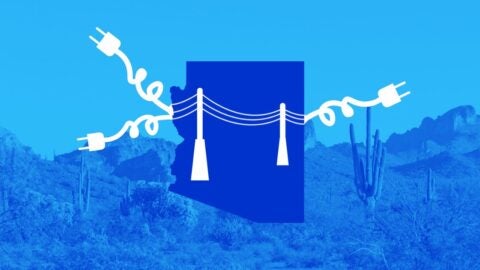Congress set to vote on major job-creating, national infrastructure bill
Three months into the COVID-19 crisis, it’s clear that the American economy and the nation’s workforce needs more help. Millions are still out of work and experts have declared a recession. To address this need, next week the House of Representatives will take up a recovery bill that seeks to not only restore America’s crumbling infrastructure, but to create millions of jobs while building the healthier, safer and cleaner future we need.
The Moving Forward Act presents a transformative and actionable plan that can spur job growth almost overnight, and change the trajectory of our energy economy for decades to come–while addressing head-on the related environmental health impacts that disproportionately impact local communities.
This bill adds to mounting pressure for the U.S. Senate to help American families in a way that builds stronger, healthier communities for the long-term.
Here’s how the Moving Forward Act paves the way for prosperous communities and a safer climate:
Makes significant investments to clean up our nation’s transportation system:
- $1.7 billion for transit agencies to purchase zero-emission buses
- $500 million per year for zero emission ports, which will reduce air pollution and help mitigate the health disparities that exist in America’s port communities
- $200 million to expand the use of sustainable aviation fuels that will reduce aircraft greenhouse gas emissions
- Requires the U.S. Postal Service fleet, including medium and heavy duty trucks, to move to zero-emission vehicles
Invests in clean energy to make sure this sector, the fastest growing energy sector in the U.S., thrives and grows to meet tomorrow’s energy needs:
- Extends and expands tax incentives for renewable energy, energy storage, electric vehicles, energy efficiency and other clean energy technologies.
- $700 million per year to modernize our electric grid and make sure it can support the expansion of clean energy generation and use throughout the country, as well as withstand increasingly extreme weather
Protects communities from climate-fueled extreme weather events that we are facing today:
- $6.25 billion for pre-disaster mitigation to build resilience through natural infrastructure protections such as marshes that have been stripped under the pressures of sea level rise, erosion, and development.
- $3 billion for a coastal resilience fund to shore up coastlines and habitat restoration, steering funding toward under-resourced communities.
- Sets up a revolving loan fund authorizing the Federal Emergency Management Agency (FEMA) to provide low-interest loans to states and tribal governments for projects that reduce disaster risk. Eligible projects would help mitigate risk from disasters such as drought and prolonged heat, severe storms, wildfires, earthquakes, flooding and chemical spills.
Puts workers in our nation’s oil and gas fields back on the job cutting pollution:
- $2 billion to states to hire experts in the field to properly close and remediate orphaned oil and gas wells. These wells, which may number over 500,000 around the country, leak toxic air and water pollution, as well as emissions of methane, a potent greenhouse gas.
Cleans up leaking natural gas pipelines, while protecting low-income consumers
- $1.25 billion for utility companies to offset the cost of replacing a portion of the nation’s 2.5 million miles of natural gas distribution lines in low-income communities.
Protects communities from exposure to lead in drinking water:
- An amendment to the bill that’s been filed will by provide $22.5 billion over 5 years for full lead service line replacement–prioritizing low-income and environmental justice communities. Across the country, over 11,000 communities still have these lead pipes.
Voters across parties strongly support these investments to rebuild our nation’s economy. Now is the time to expand clean energy and protect the health and safety of American families by passing the Moving Forward Act.












